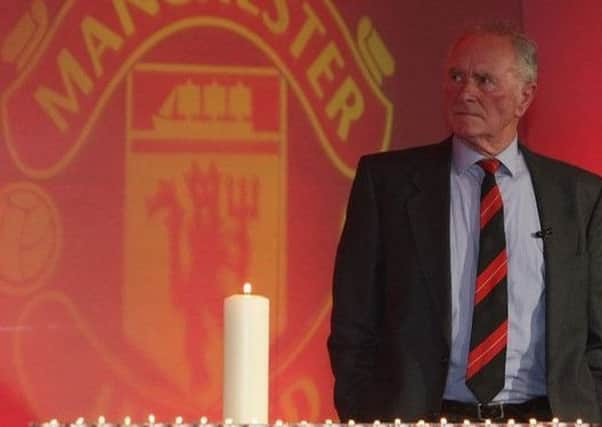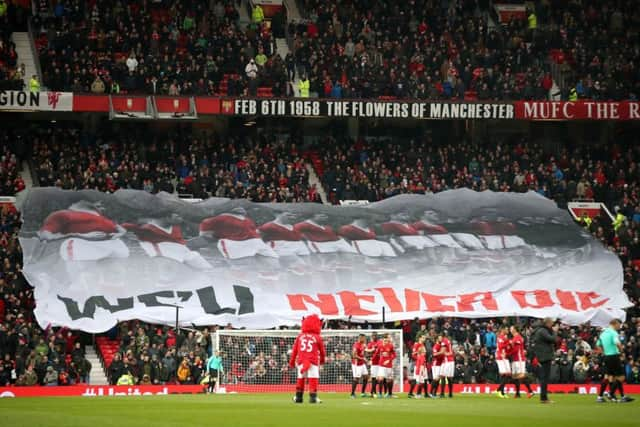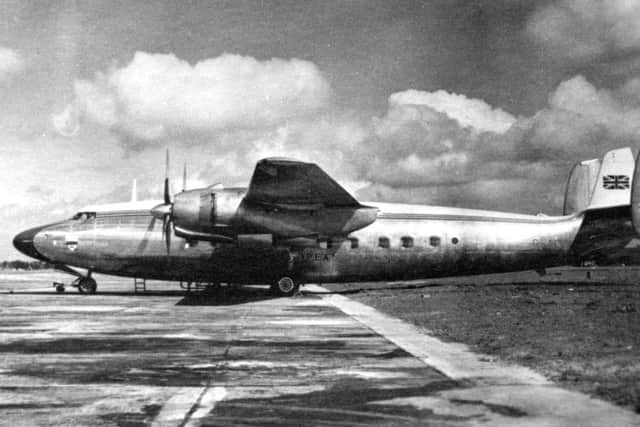Harry Gregg: I no longer think about Munich crash every day, and I am glad of that


The Coleraine-born goalkeeper had only been a Manchester United player for two months when events in Munich were to define his sporting legacy.
Speaking to Football Focus on Saturday the 85-year-old said: “I remember a Volkswagen van coming ploughing through the snow to pick up injured and bodies. I was one of the lucky ones.
Advertisement
Hide AdAdvertisement
Hide Ad“Bob [Charlton] and myself are the last two left. The Red Devil spirit lives. It never died.”


Amid the wreckage of the crash Gregg, who had escaped through a hole in the fuselage, repeatedly returned to the burning aircraft to rescue others still trapped inside.
As well as saving fellow United players Charlton, Dennis Viollet and countryman Jackie Blanchflower from the plane, he also saved Vera Lukic, the pregnant wife of a Yugoslav diplomat and her daughter, Vesna. Vera later gave birth to a baby boy whom she called Zoran.
In an interview with The Times from several years ago Mr Gregg said: “I thought I was dead until I felt the blood running down my face.
Advertisement
Hide AdAdvertisement
Hide Ad“I didn’t want to feel my head because I thought the top had been taken off like a hard-boiled egg. I was so confused. It was total darkness yet it was only three in the afternoon – it was hard to reconcile.


“At first I thought I was the only one left alive. In the distance I noticed five people running away, they shouted at me to run. At that moment, the aircraft captain came around from what had been the nose of the aircraft carrying a little fire extinguisher.
“When he saw me he shouted in his best pucker English accent: ‘Run, you stupid b*****d, it’s going to explode’.”
He added: “They were still shouting at me to run. I could hear the child crying and felt angry they were running away, so I shouted again, ‘Come back, you b*****ds, there’s people alive in here’. For me to shout that was difficult because, at that time, I was a God-fearing man and wouldn’t normally have cursed. But the people just kept running.”
Advertisement
Hide AdAdvertisement
Hide AdRemarkably, he made three trips back into the burning plane. The third time he was looking for his close friend Jackie Blanchflower.


He said: “I began to search for Jackie Blanchflower and I shouted out his name. Blanchy and I had been friends since we played together for Ireland Schoolboys as 14-year-olds and I was desperate to find him.”
On May 15, 2012 Sir Alex Ferguson brought a strong Manchester United side to Windsor Park to play an Irish League XI for Gregg’s long overdue testimonial.
Writing for the Daily Mail last week Mr Gregg told how he has struggled to live with what happened in Munich: “Over the years, I have had some troubles dealing with it.
“Survivor’s guilt is what they call it, I believe.
Advertisement
Hide AdAdvertisement
Hide Ad

“For many years I really did struggle even to face the families of some of my team-mates who died. Why them? Why not me?
“I will be honest to say today that I have moved on a little from that now. I will meet relatives of my team-mates in Manchester [this] week and share memories, both good and bad. I no longer think about Munich every day and I am glad of that.
“If I did, I don’t think I would ever sleep at night.”
• The following recollections of the Munich disaster are extracts from John White’s book ‘Irish Devils: The Official Story of Manchester United and the Irish’.
Colm Devine, who grew up in Aghyaran, Co Tyrone said: “I can remember the Munich air disaster having a severe effect on everyone at home as everyone was talking about it no matter where I went even though we had no TV to keep us updated on the tragic events that unfolded on that fateful 6th February day in 1958.
Advertisement
Hide AdAdvertisement
Hide Ad“The following weekend the local newspapers carried all the stories about the different players who had been killed so tragically and of course the Irish papers focused mainly on Billy Whelan, Harry Gregg and Jackie Blanchflower.
“These three guys were just about as good as you could find in those days.
“We all just kept asking ourselves ‘Why did this have to happen?’ I was 11-years-old and (my brother) Gerard was 10-years-old but even at that young age we felt cheated that we would never see the Busby Babes in action again.”
William John Pollock Angus, one of the oldest members of Carryduff Manchester United Supporters’ Club, said: “I was born in 1938 and attended Groomsport Primary School in Co Down before going to Central Secondary School in Bangor, Co Down.
Advertisement
Hide AdAdvertisement
Hide Ad“The majority of people worked in the gas works in Bangor or at the Harland & Wolff shipyard in Belfast.
“I can still recall to this very day where I was when the news of the Munich air disaster reached my young ears. I was in the store room of the gas works when the news of the air disaster came in.
“I could not believe what I was hearing at first but then the news on the radio and in the newspapers the following day told us all what we did not want to hear; a number of the famous Busby Babes had lost their lives in a plane crash at Munich Airport on their way home from playing Red Star Belgrade the previous evening.
“I was absolutely devastated and in many ways I was in total disbelief. I still regard Duncan Edwards as one of the greatest players I have ever seen. Duncan was so powerful and he played the game as if he was having a kick-about with his mates in someone’s back garden.”